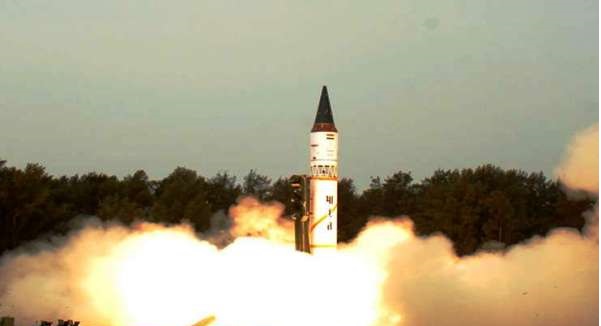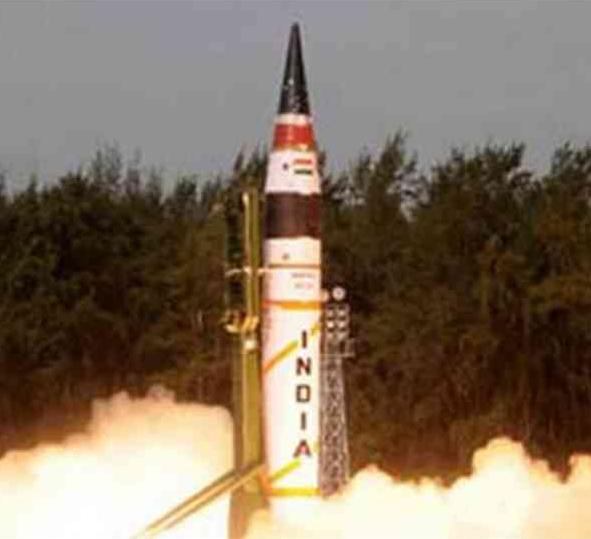Updated By: LatestGKGS Desk
Ballistic Missile Testing: India successfully test Agni-1 ballistic Missile

India successfully conducted a nightly test of the indigenously built Agni-1 ballistic missile capable of carrying nuclear weapons on November 30, 2018.
The Strategic Force Command examined the missile from Dr Abdul Kalam Island to strengthen the campaign preparations.
Sources said the test was successful and said that all the targets have been acquired during the trial.
Sources said the test was successful and said that all the targets have been acquired during the trial.
Agni-1 missile is an atom-able nuclear-capable missile from the surface developed from indigenous technology.
The missile can be left out of both mobile and mobile launchers.
This missile can distinguish the target of 700 kilometres.
Its firepower is quite high and it can destroy the enemies by spending hundreds of kilometres.
It is capable of throwing atom bombs too.
Special Shipping System has been set up in Agni-1, which ensures that the missile reaches its goal with a very accurate target.
The 15 meters long and 12-tonne weighing missile is capable of carrying conventional and nuclear weapons of a quintal load.
The first test of this missile was done on January 25, 2002.
This is a solid rocket propellant system guided missile and it is equipped with a special navigation system.
This system ensures that missiles reach their target with high accuracy.
This missile, already included in the armed forces, has proven itself in the case of antidote, accuracy and vulnerability.
Agni-1 has been developed by the Advanced Systems Laboratory (ASL) with the help of Defense Research Development Laboratory (DRDL) and Research Center Building (RCI).
The missile has been consolidated by Bharat Dynamics Limited, Hyderabad.
ASL is the leading laboratory of DRDO, which develops the missile.
